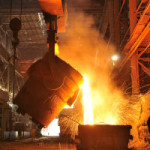
Bringing back America's manufacturing sector
February 22, 2012
Bringing back America's manufacturing sector
February 22, 2012
This Brookings paper argues that manufacturing is essential to economic security, and that the U.S. must create policies that improve the health of the economy by making smart investments. The report was written by Susan Helper, Carlton Professor of Economics at Case Western Reserve University and Policy Matters board member; Timothy Krueger, Policy Matters researcher; and Howard Wial, a fellow at Brookings' Metropolitan PolicyProgram.
Read the full report here.
WASHINGTON, D.C.—Policy choices, not uncontrollable market forces, have caused the decline of American manufacturing and the loss of millions of jobs, according to a new paper from the Brookings Institution Metropolitan Policy Program.
 The new paper, “Why Does Manufacturing Matter? Which Manufacturing Matters?” describes why manufacturing is important to our economy, explains which types of industries and business strategies are most important, and makes recommendations aimed at reviving an economic sector that was once the envy of the world.
The new paper, “Why Does Manufacturing Matter? Which Manufacturing Matters?” describes why manufacturing is important to our economy, explains which types of industries and business strategies are most important, and makes recommendations aimed at reviving an economic sector that was once the envy of the world.
“We didn’t have to lose so many manufacturing jobs,” said Howard Wial, Brookings Fellow and one of the report’s authors. “It’s often assumed that greater productivity and high wages meant fewer jobs, but our research shows otherwise. We made policy choices, and the decline in our manufacturing base was the product of those choices.”
Among the report’s findings:
• Manufacturing provides high-wages jobs, is a major source of innovation, is key to reducing our trade deficits, and makes a disproportionately large contribution to environmental sustainability.
• The manufacturing industries that make the largest contributions to those four areas are also those that have the greatest potential to maintain or expand employment. Computers and electronics, chemicals (including pharmaceuticals), transportation, and machinery are especially important.
• American manufacturing needs to be strengthened in several areas, including research and development, where its historic advantage is eroding; access to financing; worker training at all levels; and greater engagement of workers and communities.
“Manufacturing makes significant contributions to our nation’s economic goals,” said Susan Helper, Professor of Economics at Case Western Reserve University and an author of the report, “and smart policies could increase those contributions.”
“It’s wrong to think we can’t make things to sell to the world,” Wial said. “We need to put smart, targeted policies into place that help stimulate innovation, develop a skilled workforce, and create a reliable financing platform. At the same time, we need to pay careful attention to which industries give us a competitive advantage.”
Wial and Helper stressed the U.S. should promote “high-road” production, in which skilled workers make innovative products, and that public policy needs to be aligned at the local, state, and national levels.
“Germany is one of several examples of countries that are leaders in this area of policy,” Helper said. “They have integrated policies in R&D, finance, and labor that promote innovative, high-wage manufacturing.”
The new paper is being released amid an energetic and high-level public debate about the role of manufacturing in America’s economic future. It argues for a manufacturing policy that addresses the challenges facing the manufacturing sector, promotes “high-road production,” works on multiple levels through the economy and at local, state, and national levels, and includes more stakeholders.
Read the full report here.
Tags
2012Sustainable ManufacturingPhoto Gallery
1 of 22